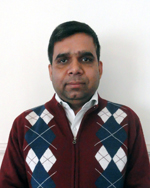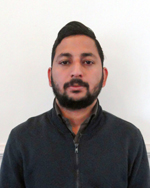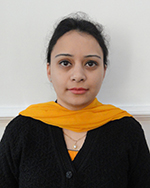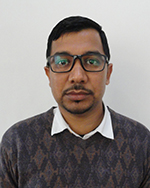The Dept. of Electrical Engineering at MIET was set up in 1999 and was among the first three programmes to be launched initially. The department was set up with a vision to craft professionals, researchers and entrepreneurs through the industry aligned prospectus, advanced labs and experiential learning.
Vision
To become a world-class department of electrical engineering with demonstrated excellence in teaching, research and innovation
Mission
- To impart high-quality instruction in electrical engineering, equipping students with fundamental knowledge and skills to address real-world challenges in emerging domains
- To integrate academics, research, innovation and entrepreneurship to create significant value for all stakeholders
- To develop meaningful linkages with world-class organizations to constantly enhance capacity and capability
Program Educational Outcomes (PEOs)
- Successfully apply fundamental knowledge of electrical engineering in an innovative manner to solve real-world challenges in emerging domains.
- Build successful careers in diverse domains and take on higher responsibilities in industry, academics and entrepreneurship to create significant value for all stakeholders.
- Demonstrate professional growth and development in their chosen field or program towards an advanced degree and to achieve their specific career goals.
- Build reputation for excellence, leadership and ethics.
Program Objectives (POs)
- Engineering Knowledge: Apply the knowledge of mathematics, science, engineering fundamentals, and an engineering specialization to the solution of complex engineering problems.
- Problem Analysis: Identify, formulate, review research literature, and analyze complex engineering problems reaching substantiated conclusions using first principles of mathematics, natural sciences, and engineering sciences.
- Design/development of solutions: Design solutions for complex engineering problems and design system components or processes that meet the specified needs with appropriate consideration for the public health and safety, and the cultural, societal, and environmental considerations.
- Conduct investigations of complex problems: Use research-based knowledge and research methods including design of experiments, analysis and interpretation of data, and synthesis of the information to provide valid conclusions.
- Modern tool usage: Create, select, and apply appropriate techniques, resources, and modern engineering and IT tools including prediction and modeling to complex engineering activities with an understanding of the limitations.
- The engineer and society: Apply reasoning informed by the contextual knowledge to assess societal, health, safety, legal and cultural issues and the consequent responsibilities relevant to the professional engineering practice.
- Environment and sustainability: Understand the impact of the professional engineering solutions in societal and environmental contexts, and demonstrate the knowledge of, and need for sustainable development.
- Ethics: Apply ethical principles and commit to professional ethics and responsibilities and norms of the engineering practice.
- Individual and team work: Function effectively as an individual, and as a member or leader in diverse teams, and in multidisciplinary settings.
- Communication: Communicate effectively on complex engineering activities with the engineering.
- Project management and finance: Demonstrate knowledge and understanding of the engineering and management principles and apply these to one’s own work, as a member and leader in a team, to manage projects and in multidisciplinary environments.
- Life-long learning: Recognize the need for, and have the preparation and ability to engage in independent and life-long learning in the broadest context of technological change.
Program Specific Outcomes (PSOs)
- Demonstrate the fundamental knowledge in electrical circuits, power systems, power electronics, electrical and electronics measurement, electrical machine, control system and to understand the need for renewable energy systems for developing clean energy and their applications in industry.
- Demonstrate competence in analyzing, designing and implementing industry relevant electrical systems and to provide electrical solutions for real world problems in multi-disciplinary environment.
Scope of Employment
Electrical Engineers can work in atomic power plants, hydel or thermal power plants. Job opportunities are ample in both private and public sector like railways, civil aviation, electricity board and utility companies, electrical design, and consultancy firms and all types of manufacturing industries.
Specializations
MIET offers Electrical Engineering Hons. / Minor degree with specializations in the following
- AI & Machine Learning
- Internet of Things
- Data Science
- Cloud Computing
- Cyber Security
In association with 
Highlights
- Qualified, experienced and competent faculty - 100% faculty has M.Tech qualifications
- Over 550 students placed in reputed organizations and government sector since inception.
- Advanced Simulation Lab setup with AICTE funding in 2013
- Students have the option of training at the State-of-the-Art Cisco Networking Academy on campus on latest networking technologies leading to CCNA certification.
- Invited Lecture Series in place, which invites reputed academicians and industry experts to interact with students on a regular basis.
- Personality development programmes, seminars, mock tests and interviews, aptitude building sessions, display-your-talent events organized on a regular basis.
- Volunteer work and community outreach programmes are given priority

























